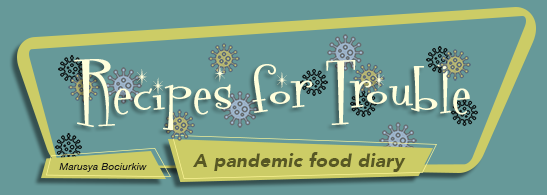Cheesecake and Perogies
I make cheesecake with my mother for the Easter meal. She sighs impatiently as I struggle with the food processor, tsks at the not-quite-stiff texture of my beaten eggwhites. It is like working with a master chef; I am the eternal apprentice.
The recipe has been passed on by her friend, one of the women I lovingly call The Divas of the Church. It is akin to a religious text; there is doctrine, ritual, and discipline embedded in its directives. What’s more, the author of this recipe will be coming over in a few days to taste the cheesecake, and this may explain some of the tension in the air.
It is a beautiful sunny day. I am honoured to be asked to help with the cheesecake. I am of two minds, two hearts. I long to walk in the River Valley, and leave this small, warm kitchen with all of its traditional, labour- intensive, culinary demands.
Still, my senses are alive to this moment. The sharp smell of the lemon zest. The beauty of her graceful, wrinkled hands working the pastry dough. The simple artistry with which she decorates the cake: a dusting of icing sugar, a spray of daisies. Her serenity as she does so.
We have lunch with the nieces and grand niece, six of us crowded around my mother’s tiny kitchen table, perogies at the centre, my mother at the head.There isn’t much talking: there is borscht to be eaten, its blood red hue staining our lips; two kinds of perohy, potato and sauerkraut; two kinds of cake for dessert. Peyton, the youngest, is happily passed from arm to arm.
The ages in this room range from two to eighty-two.
There is youth, and old age, and energy, history, anxiety, longing, love, and hope, here, in this kitchen, that in this moment, is home for me.









What a beautiful photo of your mother’s hands.